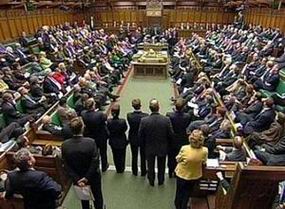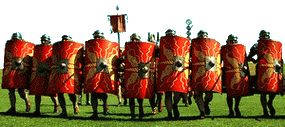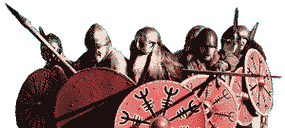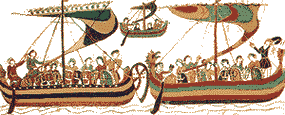
20th century
The Status and the Government of the UK
The United Kingdom is a constitutional monarchy and a parliamentary democracy. The monarch of the UK represents the royal power. The king or the queen of the UK is the head of the state. This monarch is also the head of the state of the fifteen other Commonwealth countries. It is a well-known fact that […]
{More»} 00 Early period
 Prehistoric times of the British Isles»
Prehistoric times of the British Isles»
Britain is an island and this fact is more important than any other in understanding its history. The British Isles were the object of different foreign invasions for many times. The conquerors always had to have a dialogue with the conquered, producing sooner or later a mixed society with elements from both. The island enters […]
00 Roman Britain
 The Roman Invasion»
The Roman Invasion»
In the middle of the first century BC Julius Caesar landed the British Isles. On the 26th of August, 55 BC some 10.000 men and 500 cavalry landed somewhere between Dover and Deal. The highly efficient Roman army had little difficulty in routing the local Celtic chieftains. Caesar carefully noted the way they fought and […]
09th century
 Changes in the Administration»
Changes in the Administration»
By the beginning of the 9th century changes had come about in Anglo-Saxon society. There were now big landed estates with bond peasants working on them for the owners. With the development of feudal relations great changes were taking place in administration too. Rich landowners were given great power over the peasants.
11th century
 The Norman Conquest and the Establishment of Feudalism in England»
The Norman Conquest and the Establishment of Feudalism in England»
The end of the tenth century in England is marked by the advance towards feudalism. At this period the Danish invasions were renewed under king Sweyn, who had managed to unite Denmark and Norway. The attacks against England were now organized on a very interesting commercial plan. The invaders demanded a payment of money as […]
12th century
The Economic and Social Development of the State in the 12th century»
The whole economic development of the country from the 11th to the 14th century illustrates the increasing degree of exploitation of the peasant by the feudal lords, as well as by the church. Trade was increasing throughout the country with merchants and middlemen who travelled from manor to manor and market to market. Much trading […]
13th century
13th century in England»
The main provisions of feudalism may be regarded as a contract between the king, on the one hand, and his vassals, on the other. It was recognized that the king had certain rights and duties. In the same way the vassal had his corresponding rights and duties. If the feudal contract was openly violated by […]
14th century
14th century in Britain»
In the course of the 14th century parliament took its modern shape consisting of two Houses — the House of Lords and the House of Commons. In this division the knights of the shire took their places in the House of Commons with the burgesses, whereas the lords and the top clergy sat in the […]
16th century
The Reformation. Anglo-Spanish Rivalry. Colonial Expansion»
The Wars of the Roses could not prevent the economic development of the country, where ever-growing trade and the loosening of feudal ties were rapidly bringing about the end of the feudal mode of production and the extension of the marketable goods. We have already seen that by the end of the 14th century the […]
17th century
The Economic and Social Development of the Country on the Eve of the Revolution»
The English bourgeois revolution of the 17th century ushered in a new period of world history when the capitalist mode of production triumphed and the bourgeoisie became the ruling class in capitalist society. The English revolution took place in a country where capitalism developed faster than in any other country of Europe. As a result […]
18th century
Constitutional Monarchy»
By the beginning of the 18th century the conditions were ripe in Britain for the development of capitalism. The basic production of the country was still agricultural, but manufacture especially of textiles was wide-spread and prosperous. British markets extended all over the world and all aspects of production connected with shipping and foreign trade were […]
19th century
ENGLAND AT THE BEGINNING OF THE 19th CENTURY. THE PERIOD OF NAPOLEONIC WARS»
The growing hostility of England towards the development of the revolution in France finally led to war between the two countries. In 1793 using the execution of the French king as a pretext England severed diplomatic relations with France and declared war. England together with Austria, Prussia and Spain already at war with France formed […]
Famous people
Robin Hood»
Of all the popular heroes of the English people, none has ever achieved an equal name and fame with Robin Hood. For more than six hundred years, songs and ballads of this famous outlaw have been familiar on the lips of the peasantry. Kings and princes have been forgotten, but not Robin Hood and his […]
